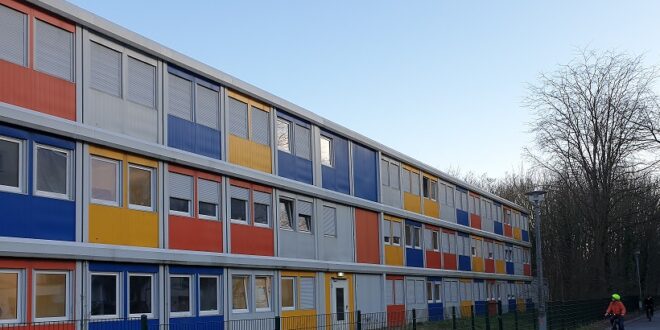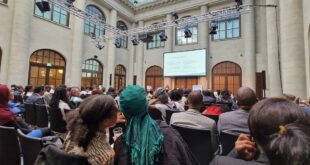The German government has appointed a special representative on migration who is expected to negotiate with major origin countries of refugees in Germany.
Joachim Stamp was named early March as Germany’s first-ever “Special representative of the federal government for migration agreements.” He’s been saddled with the responsibility of finding a solution to the about 250,000 rejected asylum-seekers who are tolerated in Germany.
Tolerated persons are people who are obliged to leave the country but are allowed to stay temporarily because they cannot be deported. This is usually because they cannot provide proof of identity, are concealing their true identity or have an illness that cannot be treated in their country of origin.
Stamp, member of the business-friendly FDP who was previously integration minister in the western state of North Rhine-Westphalia, is expected to adopt a pragmatic business approach to his assignment.
A debate is already ongoing on possible incentives Germany could offer to make the home countries of the tolerated persons ready to take their citizens back.
Since Germany needs about 400,000 migrant workers per annum to address the acute skilled labour shortages in the country, Berlin could offer home countries of the refugees a certain number of slots for skilled workers to migrate to Germany if they take back a certain number of their citizens who have been ordered to leave Germany, according to a model being discussed.
Through such a scheme, regular migration will be encouraged in the major origin countries of the refugees. “We want to make more regular migration into the German job market possible on the one hand, but we also want to reduce irregular migration significantly,” Stamp told public broadcaster Deutschlandfunk in an interview.
Under another plan being considered, those rescued in the Mediterranean will be taken to countries in North Africa, such as Tunisia, where their asylum applications will be processed. Those who are successful among the migrants can now be brought to Europe while those rejected will be deported to their home countries.
Critics of the plans say such schemes in the past failed because the North African countries didn’t want to carry the burden of Europe by taking in thousands of refugees from other countries. Commentators on the issue, such as Laura Lambert, a researcher in migration patterns at Freiburg University, point to the EU proposal of returning rescued migrants to North Africa for processing in 2018. “That was rejected as neocolonialism by all the North African countries,” Lambert told DW.
But Stephan Thomae, FDP immigration policy spokesman in the federal parliament, is optimistic that a well-crafted deal, offering incentives such as better trade relations and support for infrastructure development, could sway the North African countries this time around.
“These deals need to be negotiated, and that has never happened in the past because these negotiations were never concentrated or target-oriented enough,” he told DW. “Now we have a special representative who has precisely this job.”
Femi Awoniyi
 THE AFRICAN COURIER. Reporting Africa and its Diaspora! The African Courier is an international magazine published in Germany to report on Africa and the Diaspora African experience. The first issue of the bimonthly magazine appeared on the newsstands on 15 February 1998. The African Courier is a communication forum for European-African political, economic and cultural exchanges, and a voice for Africa in Europe.
THE AFRICAN COURIER. Reporting Africa and its Diaspora! The African Courier is an international magazine published in Germany to report on Africa and the Diaspora African experience. The first issue of the bimonthly magazine appeared on the newsstands on 15 February 1998. The African Courier is a communication forum for European-African political, economic and cultural exchanges, and a voice for Africa in Europe.






























